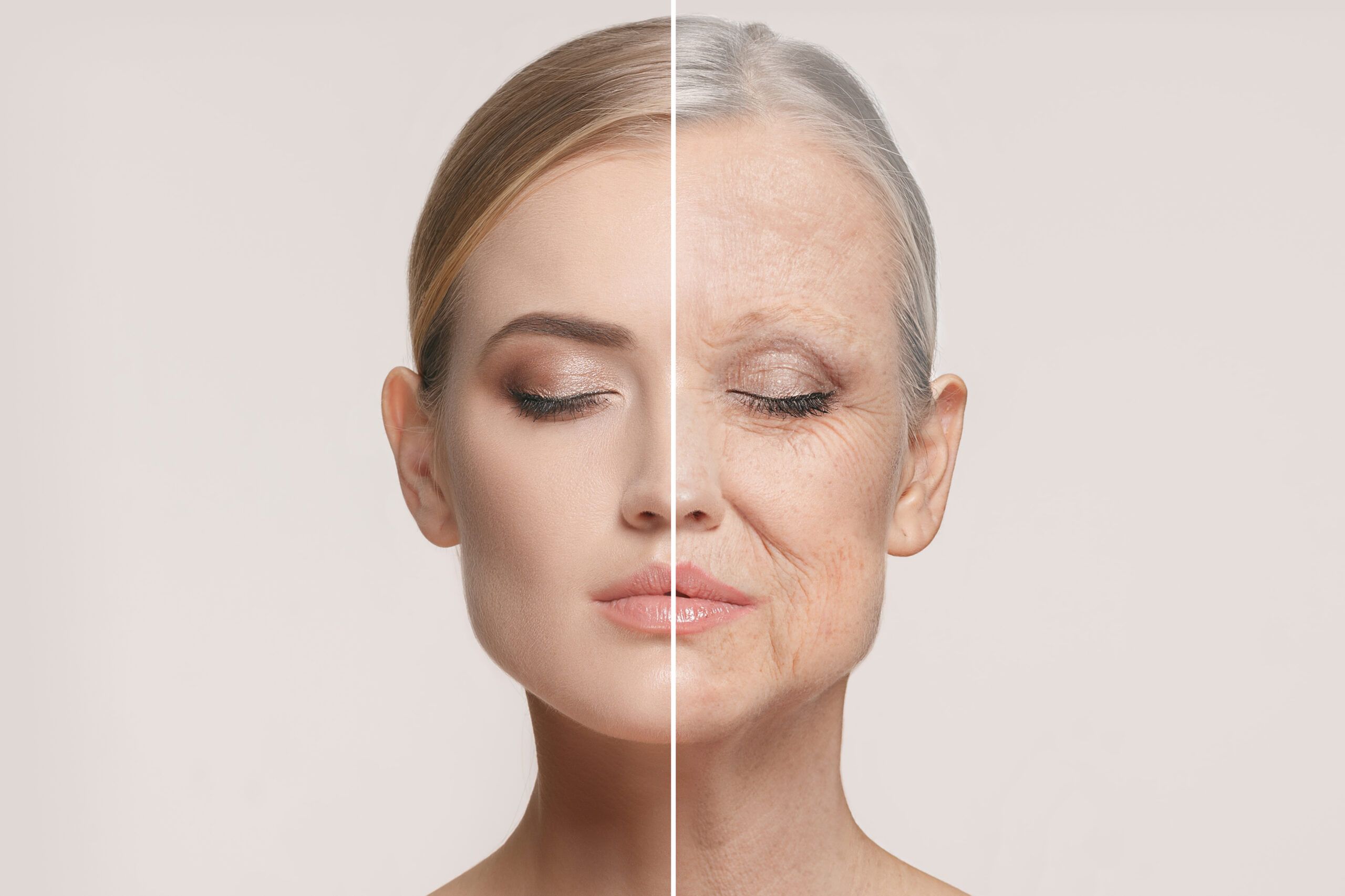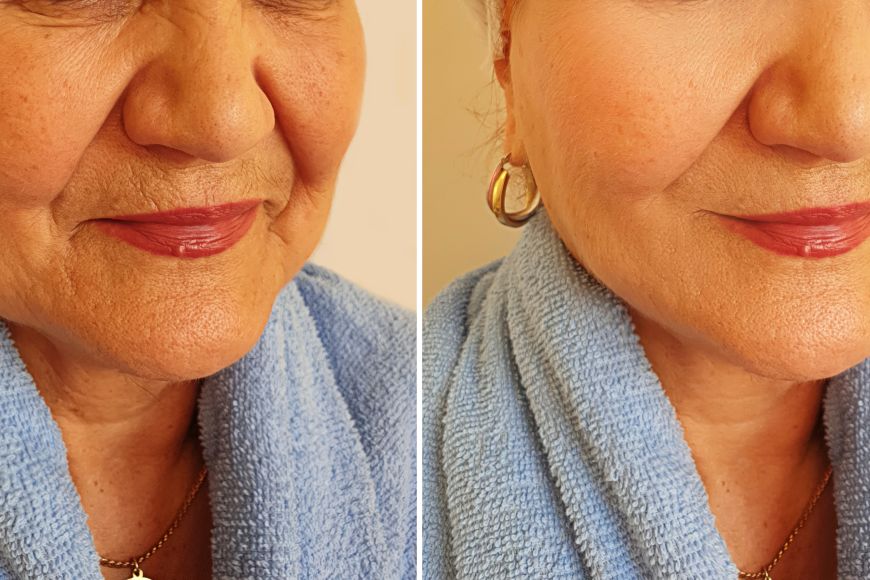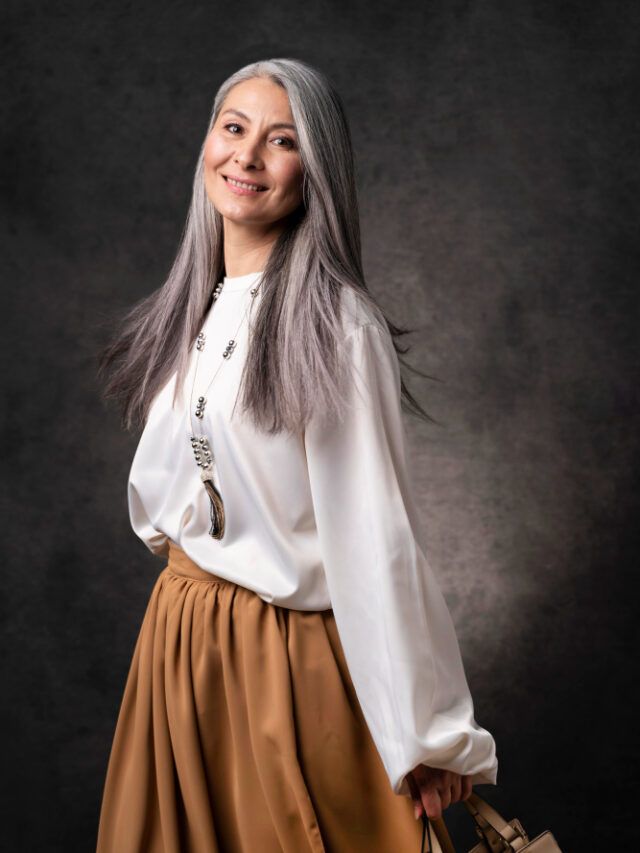If you notice your skin looking older with dullness, droopiness, wrinkles, and a sagging jawline, don’t worry, you’re not alone. These are common aging skin signs many women deal with.
But have you ever noticed women who don’t seem to age, even though their actual age is changing? What could be their secret?
This article will help you understand that you don’t have to accept the status quo. Below, we share various dermatologist-recommended ways and specifically highlight benefits of using our recommended product Beverly Hills MD Dermal Repair Complex to improve your skin’s firmness and get rid of sagging, wrinkling, aging skin
Dermatologist-Recommended Methods to Tighten Aging Skin
When hormones like DHT cause havoc, we all scramble to find the right anti-aging products! However, discovering the right anti-aging skincare is a process of trial and error. You may take a natural approach or try other proven aging skin treatments.
The following are some dermatologist-recommended ways to reduce aging skin signs.
- Nutrition and Hydration
- Improve your skin health by eating fruits, vegetables, lean proteins, and whole grains. These foods have important vitamins, minerals, and antioxidants.
- Drinking an adequate amount of water helps maintain skin moisture and elasticity.
- You can try using aging skin supplements from trusted brands like Beverly Hills MD Dermal Repair Complex. To rejuvenate the skin, these products should have amino acids, like collagen-building peptides.
- Topical Skin Treatments
- When shopping for products that help reduce signs of aging, check for ingredients like retinoids, hyaluronic acid, peptides, and antioxidants. These help stimulate collagen production and protect your skin.
- Keep your skin hydrated and plump by using ceramide, glycerin, or hyaluronic acid products daily.
- To protect your skin from aging caused by the sun, use sunscreen with SPF 30 or higher.
- Laser Therapies
- Fractional laser treatments target specific areas of the skin, stimulating collagen production and reducing wrinkles, fine lines, and age spots.
- Intense Pulsed Light (IPL) therapy addresses uneven skin tone and redness, promoting a more even complexion.
- Micro-Needling
- This procedure is not very invasive. It uses small needles to make collagen and elastin and improve texture. It can improve skin texture, tone, and firmness.
- Radiofrequency
- The energy from the radiofrequency heats the deeper skin layers. This helps to remodel collagen and tighten the skin. It’s effective for reducing sagging and wrinkles.
- Ultrasound Waves
- This method uses ultrasound energy to target deep tissue, make collagen, and lift skin without surgery.
Remember, the effectiveness of these methods varies. To get the best results, use treatments and products that dermatologists recommend.
5 Surprising Benefits of Using a Supplement Like the Beverly Hills MD Dermal Repair Complex
You can use anti-aging skincare supplements like the Beverly Hills MD Dermal Repair Complex* to improve aging skin. It provides a comprehensive approach to revitalizing your skin’s youthful glow.
Let’s delve into five unexpected benefits that set this complex apart:
- It helps to re-populate your skin’s collagen supply.
The dermal repair complex contains hydrolyzed collagen, an ultra-absorbent amino acid compound. Amino acids make collagen, which can lift your skin.
- It Inhibits the collagen-blocking effects of DHT.
Saw palmetto, one of the ingredients in this dermal complex is a plant extract. It stops DHT from blocking collagen and elastin production. So, it protects and enhances skin elasticity. As an added benefit, it also helps your hair grow.
- It reduces the appearance of sagging or drooping.
Along with the hydrolyzed collagen, it contains MSM, which helps your skin appear firm. MSM works to strengthen the collagen found deep within your skin for a more toned look.
- It diminishes the appearance of wrinkles and dullness.
The dermal repair complex contains hyaluronic acid. It’s a natural lubricant that smooths fine lines and wrinkles.
- The mixture of A and B vitamins gives you energy.
These vitamins help renew your skin cells and fight aging caused by the environment. Discover these unexpected advantages by trying the Beverly Hills MD Dermal Repair Complex.* It’s not only about looking younger. It’s also about feeling stronger and more confident in your skin.
Takeaway
As you get older, it’s common to notice aging skin problems in your skin, such as dullness, wrinkles, and sagging. Many women over 55 have concerns, which lead them to search for effective solutions.
This article explains how both genetics and the environment affect aging skin. It’s important to understand how hormones affect this process. Among them, DHT emerges as a significant player, impacting collagen and elastin production.
Dermatologists recommend different aging skin treatments to combat these effects. You can change your diet, use creams, or try laser and micro-needling treatments. You can use supplements like the Beverly Hills MD Dermal Repair Complex* to make more collagen and reduce the effects of DHT. You can improve the look and feel of your skin by using these strategies. It will also boost your confidence and energy.
* Disclaimer: This article contains an affiliate link. We may receive a commission if you make a purchase after clicking on this link.











Thanks for sharing